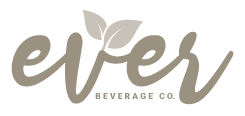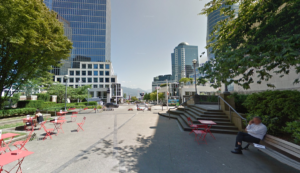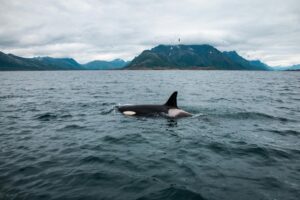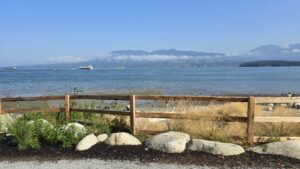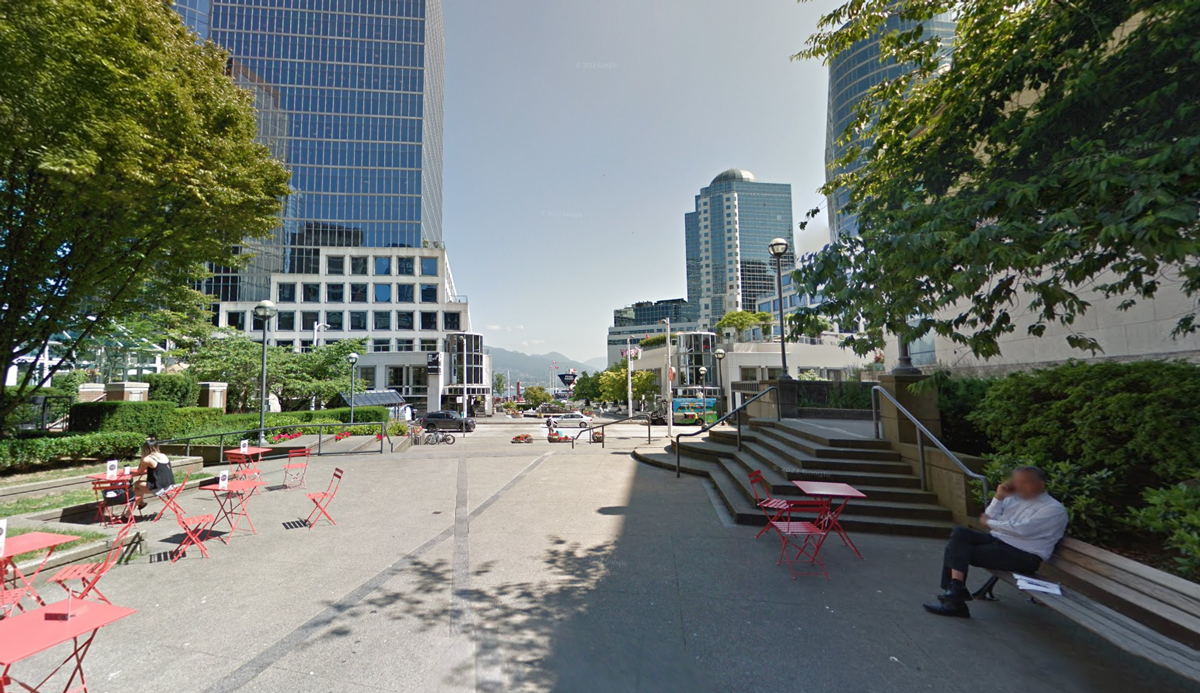
When you think of Vancouver, British Columbia, images of its stunning natural beauty, towering mountains, and vibrant culture often come to mind. But for those who know the city’s streets a little better, it’s also a haven for skateboarding.
Over the years, Vancouver has been a key player in the global skateboarding scene, home to legendary skate spots, influential skaters, one of the most iconic skateboarding competitions, and even cemented its legacy as a playable level in Tony Hawk’s Pro Skater 3 (2001).
Let’s take a ride through the rich history of Vancouver skateboarding and explore the deep connections this city has to the sport, its culture, and its legends.
The Rise of Skateboarding Culture in Vancouver
Skateboarding started as a rebellion, a counter-culture movement in the streets of California in the 1950s and 60s, and by the 1970s, the wave made its way to the streets of Vancouver. Known for its creative spirit and laid-back vibe, Vancouver was a natural fit for skateboarding’s free-flowing and boundary-pushing energy. As the sport grew, local skaters began carving out their own space in the urban landscape, turning the city into an unlikely skateboarding mecca.
In the late 1980s and early 1990s, skateboarding in Vancouver exploded. The rise of street skating coincided with a new era of urban exploration. Skaters saw the city not just as a place to live, but as a canvas to shred on. One of the most famous early skate spots was Victory Square, a downtown location that became an unofficial meeting point for local skaters. With its perfect ledges and rails, it was a proving ground for the best in the scene.
During this time, skate shops like PD’s Hot Shop became pillars of the community. These stores didn’t just sell gear; they nurtured local talent, hosted skate events, and provided a sense of belonging for young skaters. PD’s, for instance, was a hotspot for the burgeoning scene, supporting local legends and fostering the next generation of skaters.
Classic Skate Videos Filmed in Vancouver
Several classic skateboard videos have been filmed in Vancouver, BC, capturing its iconic skate spots and showcasing the city’s influence on skateboarding culture. Here are a few notable videos that feature Vancouver:
Girl Skateboards – “Mouse” (1996)
This iconic video from Girl Skateboards includes parts filmed in Vancouver. Pro skaters like Rick Howard and Mike Carroll skated in spots around the city, particularly at the Vancouver Art Gallery (VAG). The smooth ledges and urban architecture of the VAG are prominently featured, showcasing Vancouver’s aesthetic appeal for street skaters.
Plan B – “Virtual Reality” (1993)
Another skate video that filmed in Vancouver, Plan B’s “Virtual Reality”, highlights some of the most notable local skaters of the time, including Rick Howard and Colin McKay. This video captured the innovative skating happening at Vancouver’s famous street spots, such as the Victory Square and China Creek.
RDS – “F—K It” (2001)
Produced by Vancouver’s own Red Dragon Society (RDS), this video showcases the talent of the Red Dragon crew, including Rob “Sluggo” Boyce, Colin McKay, and Moses Itkonen. Vancouver’s Chinatown, Granville Street, and UBC campus appear throughout the video, with some gnarly tricks pulled at classic local spots. The “F—K It” video is an essential part of Vancouver’s skateboarding history, highlighting the city’s prominent skaters.
Transworld Skateboarding – “i.e.” (2000)
This classic video from Transworld Skateboarding features several Vancouver locations, including Victory Square and the Vancouver Art Gallery. It captures the style and flow of skaters like Moses Itkonen, and the raw street energy of the city’s skate scene.
Girl & Chocolate Skateboards – “Yeah Right!” (2003)
One of the most famous skate videos of all time, “Yeah Right!” includes footage shot in Vancouver, particularly in parts with Rick Howard, who is originally from the city. The iconic Vancouver Art Gallery once again makes an appearance, serving as a key location for the video’s street skate scenes.
Birdhouse – “The End” (1998)
In Birdhouse’s “The End”, Vancouver’s Chinatown and surrounding streets appear as Tony Hawk and other skaters tackle the city’s urban terrain. This video is renowned for its theatrical production and large-scale tricks, and some of Vancouver’s skate spots were featured.
DC Video (2003)
The DC Shoes team, including Vancouver’s own Colin McKay, filmed parts of the DC Video in Vancouver. The city’s iconic skateparks and street spots were showcased as McKay and other DC riders hit rails and ramps around town, including Hastings Skatepark.
Zoo York – “Peep This” (1999)
Zoo York’s “Peep This” also features Vancouver, specifically its famous ledges and handrails. The video captures a variety of skaters in action at Victory Square and other downtown Vancouver locations. It’s a classic example of 90s street skating.
These skateboarding videos played a big role in putting Vancouver on the map, highlighting the city’s unique terrain and skate spots that have influenced generations of skaters worldwide.
Slam City Jam (1994 - 2005)
No history of skateboarding in Vancouver would be complete without mentioning Slam City Jam. This was not just a skate contest—it was the skate contest in Canada.
The event was first held in 1994 in Vancouver, British Columbia, and quickly grew into one of the largest skateboarding competitions in the world. For more than a decade, Slam City Jam attracted the world’s top professional skateboarders, as well as thousands of fans, becoming a major highlight in the international skateboarding calendar.
Initially hosted at the PNE Coliseum in Vancouver, Slam City Jam was known for its electric atmosphere and high-energy contests. The competition featured both street and vert events, giving skaters the chance to showcase their technical skills, creativity, and bold tricks. Over the years, legends of the sport like Tony Hawk, Bob Burnquist, Bucky Lasek, Colin McKay, Eric Koston, and Rick McCrank competed at the event, solidifying its reputation as a premier contest. In 2003, a young Ryan Sheckler (13years old) made history by becoming the youngest person to win first place in the Slam City Jam street competition.
The event continued annually until 2006, when it was relocated to Calgary for one year. Unfortunately, the move and other challenges led to the event’s eventual discontinuation. However, Slam City Jam remains a key part of Vancouver’s skateboarding legacy, fondly remembered for its impact on skate culture, both in Canada and globally. It helped cement Vancouver as a hub for skateboarding, and its influence is still felt in the skate community today.

Vancouver in Tony Hawk’s Pro Skater Video Game
In 2001, Vancouver’s skate scene reached new heights when it was immortalized in Tony Hawk’s Pro Skater 3, one of the most iconic skateboarding video games of all time. One of the game’s levels was set in Vancouver, and it brought the city’s skate culture to millions of players worldwide. The game’s version of Vancouver included representations of the Vancouver Art Gallery, the downtown skyline, and some creative, game-worthy skate spots.
For many skaters who grew up playing Tony Hawk’s games, this virtual version of Vancouver introduced them to the city’s skateboarding culture. The inclusion of the city in such an iconic game was a testament to how much influence Vancouver had on the skateboarding world.

Professional Skateboarders from Vancouver
Vancouver has produced several professional skateboarders who have significantly impacted the skateboarding world. Here are some notable skaters from Vancouver:
1. Rick Howard
Rick Howard is one of the most influential skateboarders to come out of Vancouver. He co-founded some of the most iconic skateboarding brands, including Girl Skateboards, Lakai Footwear, and Royal Trucks. Known for his smooth style and technical skill, Howard has been a major figure in the skateboarding scene since the early ’90s. He also skated in several classic videos like Girl’s “Mouse” and Plan B’s “Virtual Reality”. His presence helped put Vancouver on the skateboarding map.
2. Colin McKay
Another huge name in skateboarding from Vancouver, Colin McKay is known for his innovative tricks and high-flying vert skating. He was part of the legendary Plan B team in the 1990s, contributing to game-changing videos like “Questionable” and “Virtual Reality”. McKay also played a key role in establishing the DC Shoes brand. His partnership with fellow skater Danny Way in shaping modern vert skateboarding is undeniable.
3. Rob “Sluggo” Boyce
Rob “Sluggo” Boyce is one of Vancouver’s most well-known professional skateboarders, famous for his daring vert and street skating. He’s a member of the Red Dragon Society (RDS) and was a key figure in the early days of Vancouver’s skate scene. Sluggo is renowned for landing the first-ever backflip on a skateboard in a vert ramp contest. His influence spans beyond skateboarding, as he also has a career as a stuntman and entrepreneur.
4. Moses Itkonen
Moses Itkonen is another Vancouver-born skateboarder who has made a significant mark on the skateboarding world. Known for his fluid street skating, Itkonen has appeared in several influential skate videos and was part of the Red Dragon Society (RDS) crew. He is also credited with helping to shape the style of street skating in Vancouver, making him a key figure in the city’s skateboarding history.
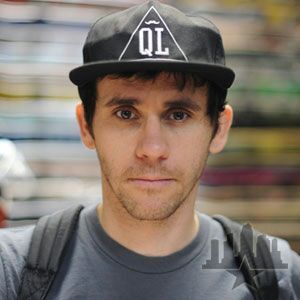
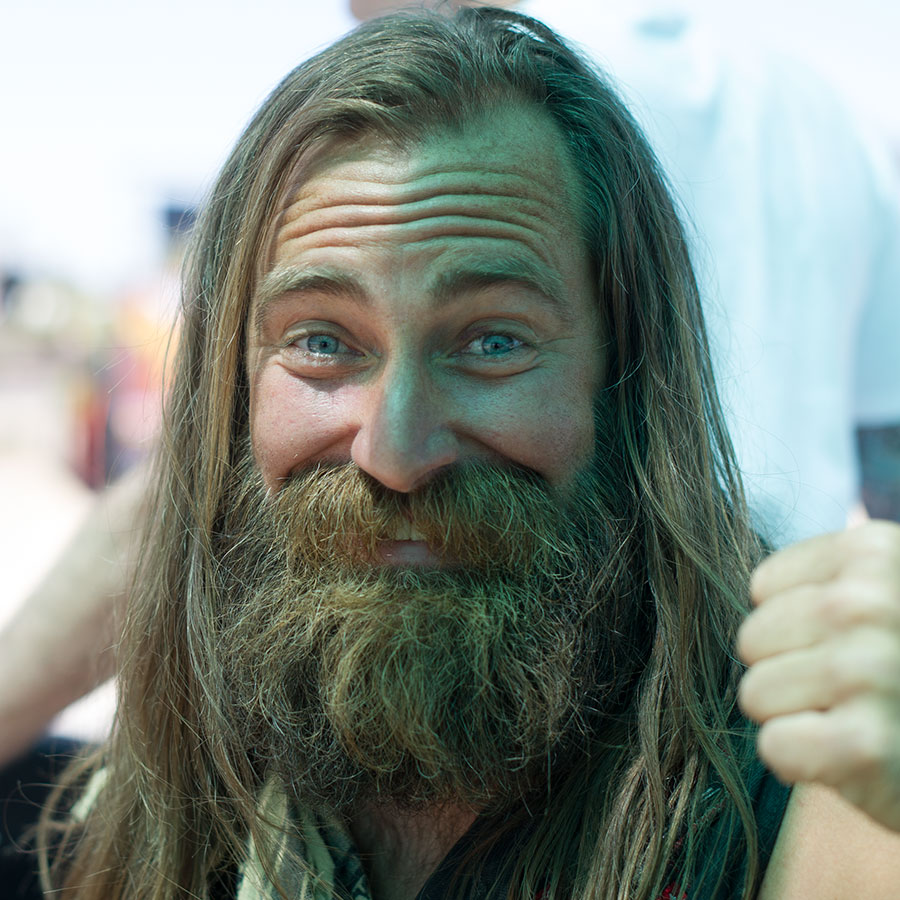
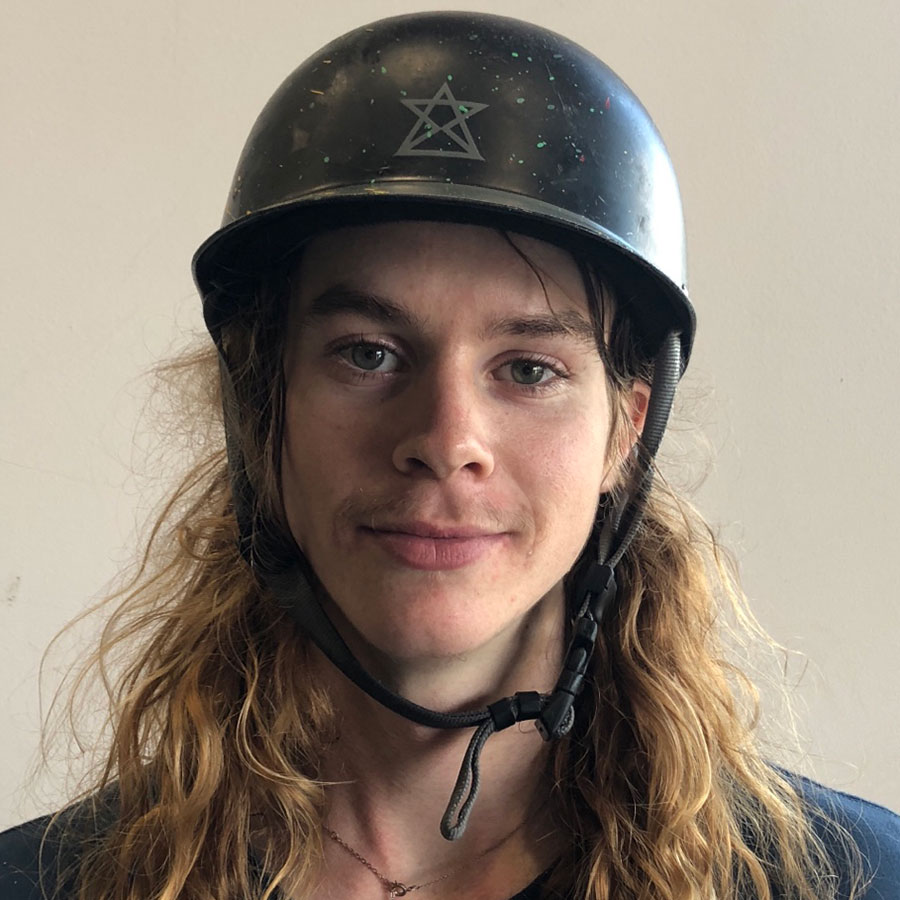
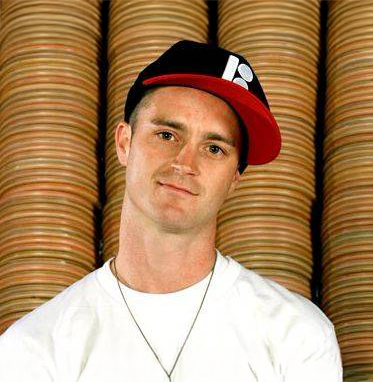
5. Paul Machnau
Paul Machnau is a professional street skater from Vancouver known for his ability to skate massive handrails and ledges. He’s appeared in numerous skateboarding videos, including parts for Transworld Skateboarding and Blind Skateboards. Machnau has gained a reputation as one of the hardest-working skaters, with a long list of jaw-dropping video parts featuring some of the biggest spots in the world.
7. Mike Hastie
Mike Hastie is a respected name in Vancouver’s skateboarding community. Known for his technical street skating, Hastie is a founding member of Center Distribution, a company that helped support local skateboarding brands. Hastie’s influence in Vancouver’s skateboarding scene includes his involvement in skate events and the promotion of local skaters.
8. Alex Chalmers
Alex Chalmers is a well-known professional skater from Vancouver with a background in vert skating. He’s competed in international skate competitions and is known for his daring tricks and technical skill on ramps. Chalmers has skated for major brands such as Element Skateboards and appeared in several high-profile skate videos. His contributions to vert skating are widely recognized.
9. Russ Milligan
Russ Milligan is another Vancouver local who made a name for himself with his smooth and technical street skating. He has skated for brands like Darkstar and Red Dragons, contributing to Vancouver’s status as a key city for street skating.
10. Rick McCrank (Vancouver, BC)
Rick McCrank is one of the most iconic skateboarders to come out of Vancouver. Known for his smooth, technical street skating and his ability to skate vert, McCrank has been a pro for companies like Girl Skateboards and AntiHero. He’s also the owner of AntiSocial Skate Shop in Vancouver and a host of VICE’s “Abandoned” series, where he explores abandoned places across North America.
11. Chris Haslam (Vancouver, BC)
Chris Haslam is a highly influential skateboarder recognized for his creativity and innovative tricks. Known for his unique style and technical skills, Haslam has been featured in some of the most well-known skateboarding videos, including Almost: Round Three and Cheese and Crackers. He has a worldwide following due to his progressive approach to skateboarding.
12. Andy Anderson (White Rock, BC)
A newer addition to the scene, Andy Anderson is known for blending modern skateboarding with old-school freestyle techniques. He’s famous for his helmet and distinctive approach to skateboarding, which earned him a spot on Powell-Peralta and a place in the 2020 Tokyo Olympics.
Skateboarding Companies that Thrived in Vancouver
Skateboarding in Vancouver isn’t just about the skaters or the spots; it’s also about the companies that have grown out of this rich scene. These companies have helped push skate culture forward, supporting local talent and spreading the Vancouver skateboarding vibe across the globe.
- RDS (Red Dragon Society)
Founded by Colin McKay and Rob “Sluggo” Boyce, RDS has been a cornerstone of Vancouver skateboarding for decades. Known for its iconic red dragon logo, RDS is a brand that embodies the spirit of Canadian skateboarding. The company sponsors some of the best skaters in the world and continues to support local events and competitions.
- AntiSocial Skate Shop
Owned by Rick McCrank, a legendary pro skateboarder from Vancouver, founded AntiSocial in 2002 as a hub for the local skate community. The shop has since become a cornerstone of Vancouver’s skate culture, known not only for selling skate gear but also for hosting art shows, film screenings, and events that support both local artists and skaters.
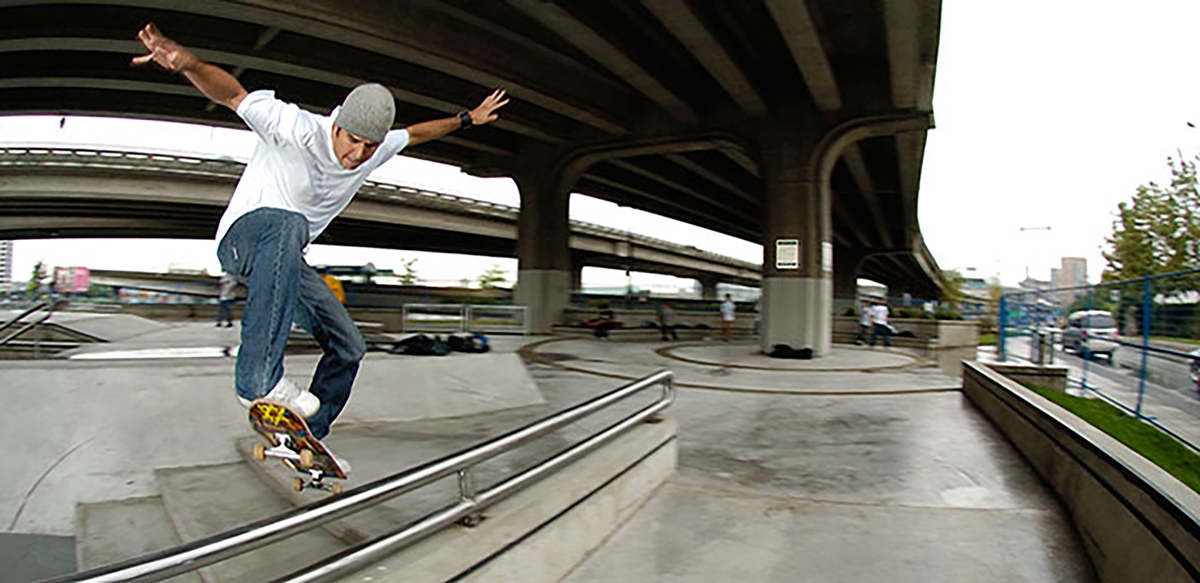
The Future of Skateboarding in Vancouver
As skateboarding continues to grow globally, Vancouver remains a vital part of the culture. With the opening of new skateparks, the support of local businesses, and a new generation of skaters taking to the streets, Vancouver’s skateboarding scene shows no signs of slowing down. The city’s deep-rooted love for skateboarding, combined with its progressive attitude towards urban spaces, ensures that it will remain a key player in the future of the sport.
Whether you’re bombing down the hills of Granville Street or hitting the ledges at the VAG, skateboarding in Vancouver is about freedom, creativity, and community. It’s a city where skateboarding isn’t just a sport—it’s a lifestyle.
As Tony Hawk himself once said, “Skateboarding is a way to let your body control the mind.” Vancouver, in all its beauty and grit, is the perfect place to live that philosophy.
